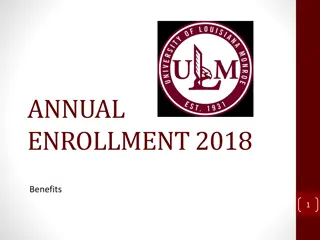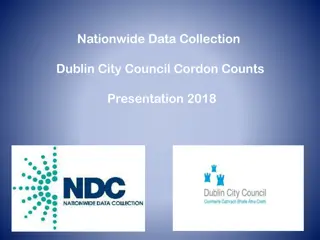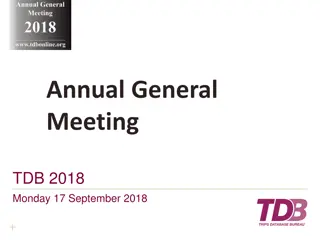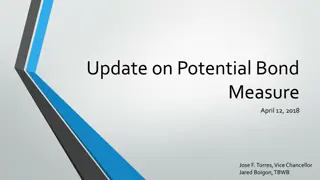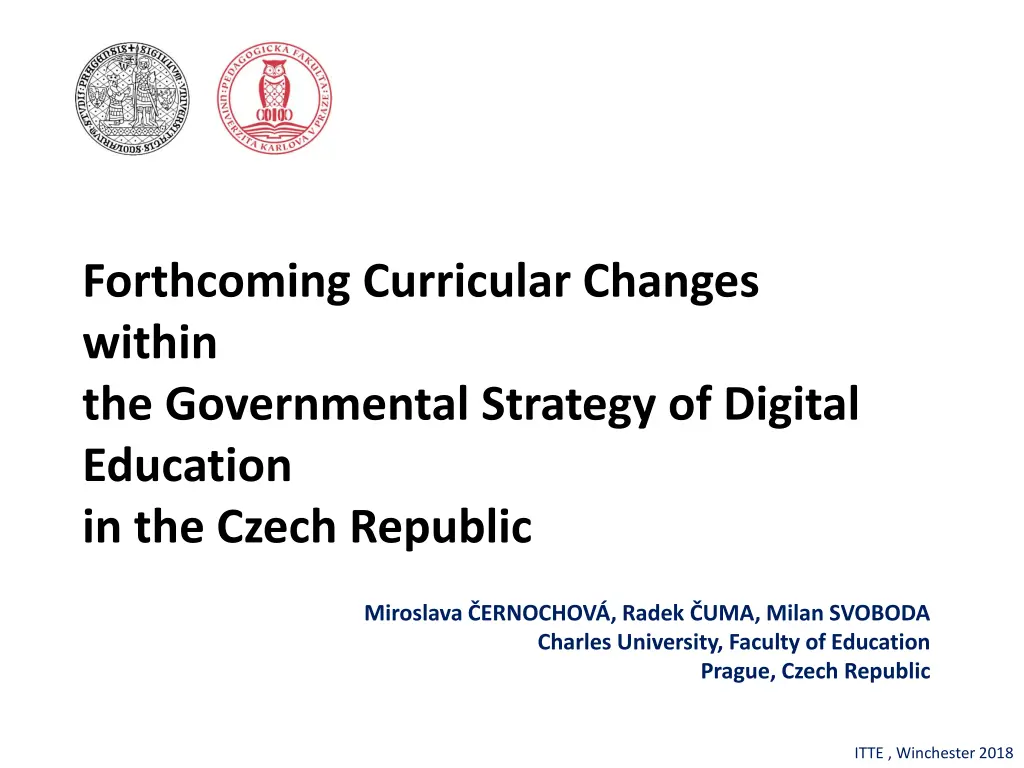
Innovations in Czech Republic's Digital Education Strategy
Explore forthcoming curricular changes within the governmental strategy of digital education in the Czech Republic, focusing on key curriculum updates, national projects like DG and PRIM, and case studies on computational thinking development.
Download Presentation

Please find below an Image/Link to download the presentation.
The content on the website is provided AS IS for your information and personal use only. It may not be sold, licensed, or shared on other websites without obtaining consent from the author. If you encounter any issues during the download, it is possible that the publisher has removed the file from their server.
You are allowed to download the files provided on this website for personal or commercial use, subject to the condition that they are used lawfully. All files are the property of their respective owners.
The content on the website is provided AS IS for your information and personal use only. It may not be sold, licensed, or shared on other websites without obtaining consent from the author.
E N D
Presentation Transcript
Forthcoming Curricular Changes within the Governmental Strategy of Digital Education in the Czech Republic Miroslava ERNOCHOV , Radek UMA, Milan SVOBODA Charles University, Faculty of Education Prague, Czech Republic ITTE , Winchester 2018
OVERVIEW 1. Introduction 2. Key changes in curriculum 3. Two national projects o DG (Digital literacy) o PRIM (Computational thinking) 4. Some case-studies for understanding of pupil s computational thinking development 5. Conclusion
1. INTRODUCTION Since 2006 up to now: ICT has been a compulsory subject in curriculum for primary, lower and upper secondary schools ICT subject develops fundamental user s skills (HW, SW, Internet) ICT teachers in schools (only 18% teachers for lower secondary schools are qualified to teach the ICT subject) Pupils do not like the ICT subject: old fashion content, old fashion teaching Old fashion task and activities for pupils
2. KEY CHANGES IN CURRICULUM Government's Strategy of Digital Education (MoEYS, 2014) The Ministry of Education, Youth and Sport of the Czech Republic (MoEYS) is currently preparing a new curriculum document, Framework Educational Programme, with two major changes: instead of ICT subject (1) pupil s digital literacy development in all school subjects DigComp (2016): five dimensions (Information and data literacy; communication and collaboration; digital content creation; safety; problem solving) (2) Informatics Computational thinking (S. Papert, J. Wing) Data, informatics and modelling; Algorithms and programming; Information systems + computer and how to handle with it All these changes are relatively radical and should be put into practice by 2020/21.
3. TWO NATIONAL PROJECTS DG Support for the development of digital literacy http://pages.pedf.cuni.cz/digitalni-gramotnost/ Since January 2018, three-year project All nine faculties: co-ordinator: Faculty of Education, Charles University, Prague Target groups: teacher educators, student teachers, teachers, students, pupils Tasks: to implement digital literacy cross curriculum To analyse existing digital objects repositories and resources To design and develop digital educational resources and objects for all educational domains in curriculum for pre-primary, primary and secondary school education To design and pilot teaching approaches how to develop digital literacy of pupils / students
3. TWO NATIONAL PROJECTS PRIM www.imysleni.cz Since October 2017, three-year project All nine faculties: co-ordinator: Faculty of Education, University esk Bud jovice Target groups: teacher educators, student teachers, teachers, students, pupils Tasks: To develop and validate teaching materials, guidelines for teaching a new subject of Informatics To validate these materials at about 60 selected schools (starting with pre-school centres ending with secondary schools) At all faculties of education to innovate or implement compulsory courses in study programs for teacher education for pre-school, primary and secondary schools teachers To design and open on-line courses for teachers of kindergartens, primary and secondary schools to be ready for the planned curricular changes / to teach informatics in schools
Case 1 4. SOME CASE-STUDIES FOR UNDERSTANDING OF PUPIL S COMPUTATIONAL THINKING DEVELOPMENT Q1: How can programming in Scratch contribute to understanding how computers work? Age: 11-12, 20 lessons Ordinary basic school (N = 22, F=10, M=10) Excellent gymnazium (N = 14, F=2, M=10) Story-telling Literacy (reading and writing) Research methods: Questionnaire, TEST 1, TEST2 Interview with pupils, observing, monitoring Analysis of essays Analysis of products in Scratch Hana ANDOV , 2015
Case 1 4. SOME CASE-STUDIES FOR UNDERSTANDING OF PUPIL S COMPUTATIONAL THINKING DEVELOPMENT Little Red Riding Hood: Hana ANDOV , 2015
Case 2 4. SOME CASE-STUDIES FOR UNDERSTANDING OF PUPIL S COMPUTATIONAL THINKING DEVELOPMENT Q2: How can primary school pupils understand testing conditions (IF-THEN, IF-THEN-ELSE, ) and some concepts (REPEAT, ) when they design algorithms? Age: 9-11, 16 lessons Small village basic school (N = 15, F = 8, M = 7) Unplugged activities Literacy (reading and writing) Reading and interpretation of notations and codes Team work Research methods: Interview with pupils, observing, monitoring their work Analysis of activities in Blocky Games, Code.org Activities with OZOBOT REPEAT N, REPEAT, REPEAT UNTIL, IF, IF - ELSE Radek UMA, 2018
Case 2 4. SOME CASE-STUDIES FOR UNDERSTANDING OF PUPIL S COMPUTATIONAL THINKING DEVELOPMENT Radek UMA, 2018
Case 2 4. SOME CASE-STUDIES FOR UNDERSTANDING OF PUPIL S COMPUTATIONAL THINKING DEVELOPMENT Radek UMA, 2018
Case 2 4. SOME CASE-STUDIES FOR UNDERSTANDING OF PUPIL S COMPUTATIONAL THINKING DEVELOPMENT REPEAT N ci p i t chto aktivit ch objevili, e jim p kaz Opakuj Xkr t dok e usnadnit pr ci a u et it as p i sestavov n algoritm . 3. t da: k 1: Proto e se tam n co opakuje. k 2: e t eba tady d me 3 a tady je t eba opakuj vp ed, tak e ono to bude t eba opakovat 3x, p jde 3x vp ed. Opakuj 3x krok vp ed. 4. t da: k 1: Kdy m me n co opakovat. k 2: Kdy t eba pot ebujeme opakovat kroky a mus me to ud lat t eba 3x. k 3: Kdy se n co opakuje. T eba krok dop edu. k 4: T eba kdy je rovn dr ha, tak si m eme d t jeden krok dop edu a on to bude opakovat. REPEAT UNTIL 3. t da: k 1: T eba umyj n dob , aby bylo ist . Opakuj omej n dob doku , aby bylo ist . Nem u ct omej 3x n dob . Nev me, kolikr t to m om t. k 2: Dokud t eba nebude smet pry . Proto e jsme nev d li kolik tam je t eba smet . Radek UMA, 2018
Case 3 4. SOME CASE-STUDIES FOR UNDERSTANDING OF PUPIL S COMPUTATIONAL THINKING DEVELOPMENT Q3: How can programming in Scratch contribute to algorithmic thinking development? Age: 10-12, 16 lessons Ordinary basic school (N = 47) Group A (N = 11, Age 10-11, M = 8) Group B (N = 12, Age 10-11, M = 10) Group C (N = 13, Age 11-12, M = 8) Group D (N = 11, Age 11-12, M = 5) Examples taken from the everyday life (without using computers) Research methods: Two Questionnaires, TEST 01, TEST02, Two questionnaires Analysis of a set of assignments focused on algorithmical thinking Before Scratch After Scratch Case study Interview with pupils, observing, monitoring pupils work Analysis of activities in Scratch Milan SVOBODA, 2018
Case 3 4. SOME CASE-STUDIES FOR UNDERSTANDING OF PUPIL S COMPUTATIONAL THINKING DEVELOPMENT Pod l innost k p i pou it po ta e PUPIL S ACTVITIES WITH A COMPUTER 10% 11% 25% 20% 34% 0% 10% 20% 30% 40% 50% 60% 70% 80% 90% 100% To prepare to school; creative activities; searching on the Internet; social network; games brouzd n po internetu hry p prava do koly tvo iv innost soc. s t Milan SVOBODA, 2018, p. 49
Case 3 4. SOME CASE-STUDIES FOR UNDERSTANDING OF PUPIL S COMPUTATIONAL THINKING DEVELOPMENT Milan SVOBODA, 2018
Case 3 4. SOME CASE-STUDIES FOR UNDERSTANDING OF PUPIL S COMPUTATIONAL THINKING DEVELOPMENT 34 original tasks with original pictures Milan SVOBODA, 2018
Case 3 4. SOME CASE-STUDIES FOR UNDERSTANDING OF PUPIL S COMPUTATIONAL THINKING DEVELOPMENT Milan SVOBODA, 2018
Case 3 4. SOME CASE-STUDIES FOR UNDERSTANDING OF PUPIL S COMPUTATIONAL THINKING DEVELOPMENT Milan SVOBODA, 2018
Case 3 4. SOME CASE-STUDIES FOR UNDERSTANDING OF PUPIL S COMPUTATIONAL THINKING DEVELOPMENT Milan SVOBODA, 2018
Case 3 4. SOME CASE-STUDIES FOR UNDERSTANDING OF PUPIL S COMPUTATIONAL THINKING DEVELOPMENT Evaluation of Scratch projects Dr. Scratch Milan SVOBODA, 2018
Thank you for your attention. miroslava.cernochova@pedf.cuni.cz







